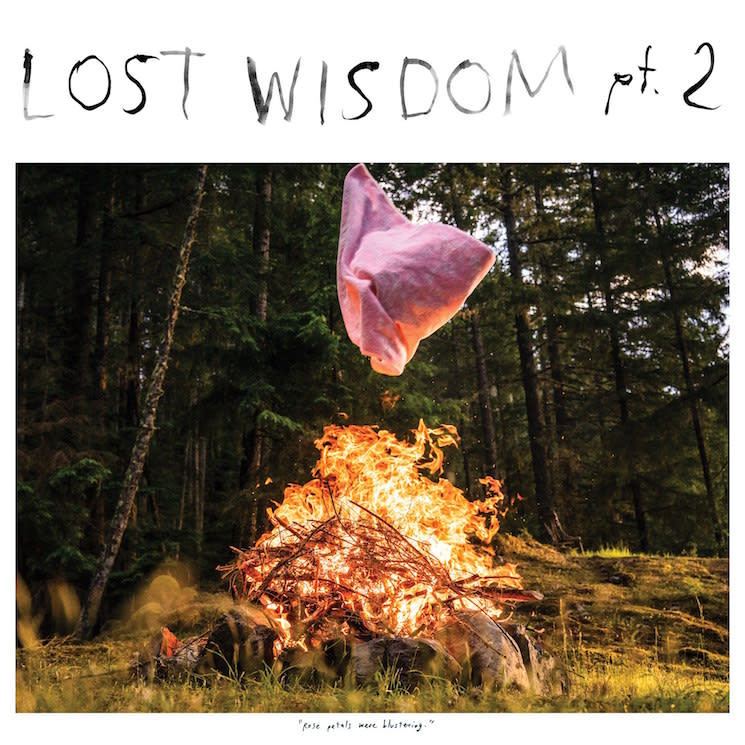Revisiting the original Lost Wisdom a little more than a decade after its release, you find an album full of questions about ghosts, empty houses and the frailty of ancient hearts. In the wake of his wife's passing and two beautiful and tragic albums exploring that loss, Phil Elverum has confronted these hypothetical questions made flesh. Reuniting with Julie Doiron, he shares what lies on the other side.
The most remarkable thing about this new album, other than the gravity that pulls their voices back to such a familiar emotional place, is how Elverum manages to merge his recent more plainspoken diary style with the elegiac and alchemical metaphors of his early voice. Songs like "When I Walk Out of the Museum" describe how, "everything, the museum, and the garbage, and the internet and the constellations all collapse into a heap," in moments where the movement of the heart and mind becomes uncertain. Uncertainty and its liquid reality is the uneasy foundation the album sits upon.
The second most remarkable thing here is how the album also examines new love, found love, love that heals and love that redefines how love works within the context of broken hearts. Hope and loss live shoulder to shoulder in songs like "Love Without Possession" and "Pink Light," where consolation opens the heart only to find itself far from home, still. It also makes Doiron's voice doubly important on the album, providing a feminine reflection or counterpoint to each song's meaning.
The music of these songs lives primarily within the spare guitar that defined the original Lost Wisdom, but with emotionally effective departures that erupt in swells of distorted electric guitar or sudden drums that send the rhythm of a song into a completely different space. It all adds up to a cycle that is as complex as it is direct at times, describing the imbalances between moments of lucidity and desire, and what is lost or gained when one declares "let's get out of the romance."
(P.W. Elverum & Sun, Ltd.)The most remarkable thing about this new album, other than the gravity that pulls their voices back to such a familiar emotional place, is how Elverum manages to merge his recent more plainspoken diary style with the elegiac and alchemical metaphors of his early voice. Songs like "When I Walk Out of the Museum" describe how, "everything, the museum, and the garbage, and the internet and the constellations all collapse into a heap," in moments where the movement of the heart and mind becomes uncertain. Uncertainty and its liquid reality is the uneasy foundation the album sits upon.
The second most remarkable thing here is how the album also examines new love, found love, love that heals and love that redefines how love works within the context of broken hearts. Hope and loss live shoulder to shoulder in songs like "Love Without Possession" and "Pink Light," where consolation opens the heart only to find itself far from home, still. It also makes Doiron's voice doubly important on the album, providing a feminine reflection or counterpoint to each song's meaning.
The music of these songs lives primarily within the spare guitar that defined the original Lost Wisdom, but with emotionally effective departures that erupt in swells of distorted electric guitar or sudden drums that send the rhythm of a song into a completely different space. It all adds up to a cycle that is as complex as it is direct at times, describing the imbalances between moments of lucidity and desire, and what is lost or gained when one declares "let's get out of the romance."
